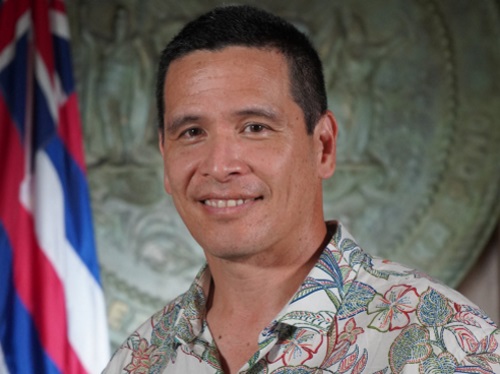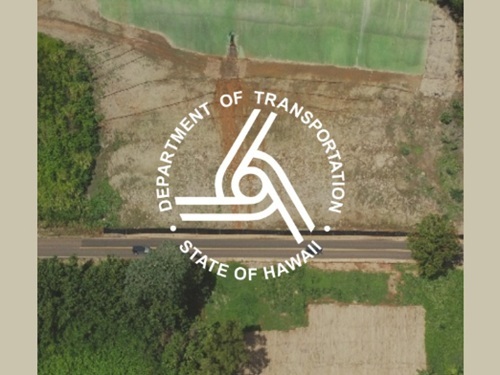The Hawaii Department of Transportation recently implemented a Road Usage Charge or RUC for light-duty passenger electric vehicles or EVs on July 1, following a federally funded three-year research and demonstration project in concert with authorizing legislation passed in 2023.
[Above photo by Hawaii DOT]
From July 1 forward, EV owners renewing their vehicle registrations will have two options: a state per-mile RUC of $8 per 1,000 miles, capped at $50, or a flat annual RUC of $50. These options replace the existing $50 EV registration surcharge. EV owners can use a RUC Estimator to help determine which option is best for them, the agency said.
Hawaii DOT added that the registration renewal process will be nearly identical to today, with the primary difference being that all vehicle odometers will be photographed at their next periodic motor vehicle safety inspections, or safety checks.

By 2028, the agency noted, this per-mile RUC will become mandatory for EVs – and by 2033 it will apply to all light-duty vehicles.
Hawaii DOT explained that, as more drivers in Hawaii choose more fuel-efficient or all-electric vehicles, revenues from motor fuel taxes and other vehicle registration fees have declined, resulting in less funding to maintain state roads, bridges and infrastructure – and why it believes the RUC will help ensure long-term, sustainable funding for state transportation needs.
“Instead of paying based on what type of car you drive – or can afford – a road usage charge means vehicle owners will pay only for how much they actually drive. It’s a much fairer way for everyone to contribute to keeping our roads and bridges safe and operable,” said Ed Sniffen, director of the Hawaii DOT, in a statement.
“We are starting initially with EVs and aim to phase all light-duty passenger vehicles into the program by 2033,” he explained. “Hawaii is fortunate since we can use our annual safety inspection program, making the process easy and cost-effective.”
“EV drivers have long led our journey to a sustainable transportation future. As we move away from gas vehicles, we must modernize how we fund our roadways and bridges. The Hawaii Road Usage Charge is a fair and forward-looking solution that ensures everyone contributes to the infrastructure we all rely on,” said Noel Morin, president of the Hawaii EV Association. “Hawaii EV has worked closely with the Hawaii DOT over the past two years and supports this transition. We are proud that EV owners continue to lead the way.”
Other state departments of transportation are also testing out similar RUC programs.
Since 2015, the Oregon Department of Transportation has operated the OReGO pay-by-mile program, whereby program members pay two cents for each mile they drive to help fund state road and bridge funding. New electric vehicles and vehicles with 40-plus mpg receive a $35 to $115 annual savings on Department of Motor Vehicle fees when enrolled in OReGO, the agency noted.
Meanwhile, the Utah Department of Transportation operates a similar RUC program on a voluntary basis for EV and petroleum powered vehicles; part of a long-term transition plan to a RUC proposed for all vehicles operating in the state by 2032
 States
States
Key Advances Made for Kentucky’s I-69 Bridge Project
January 16, 2026 States
States

